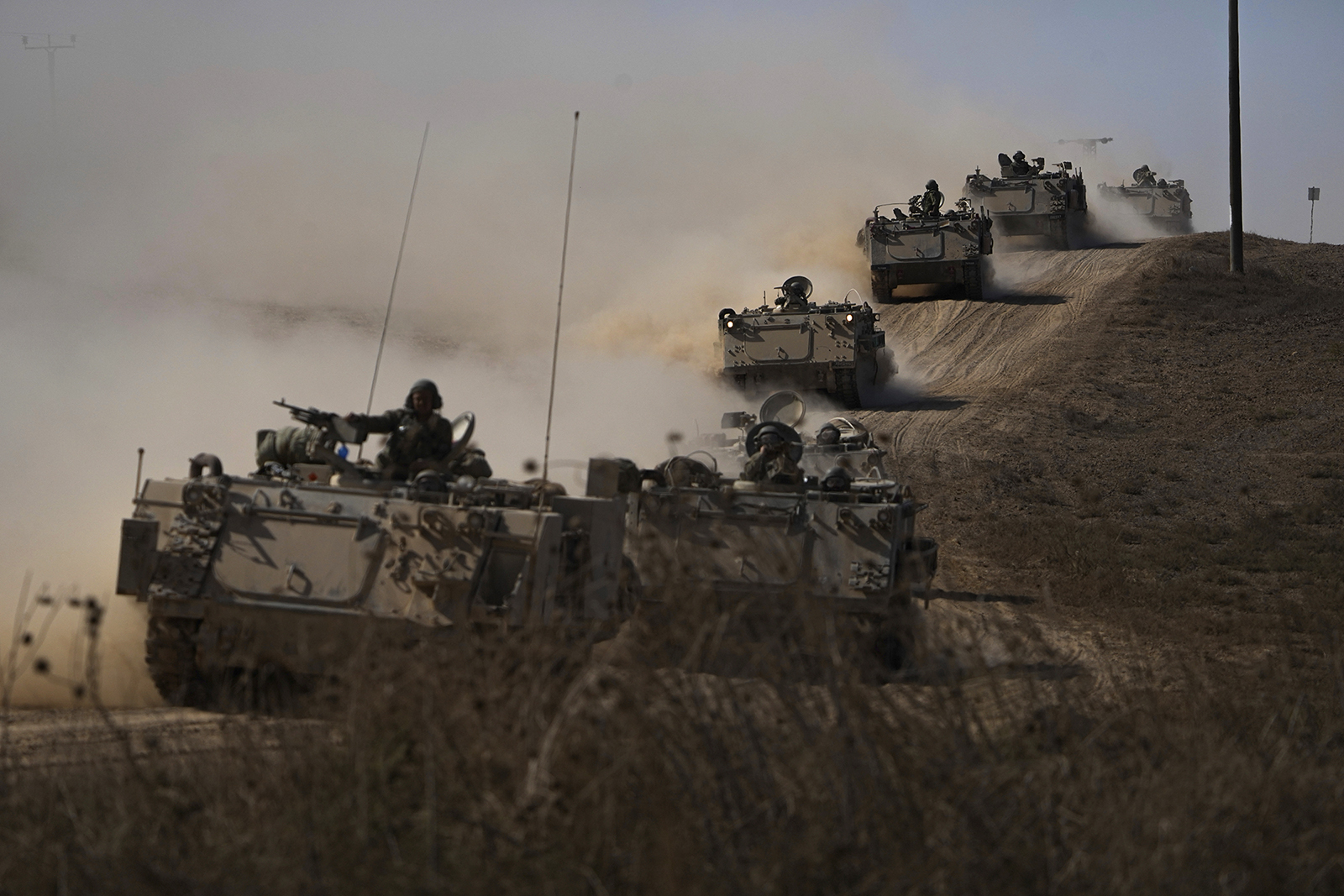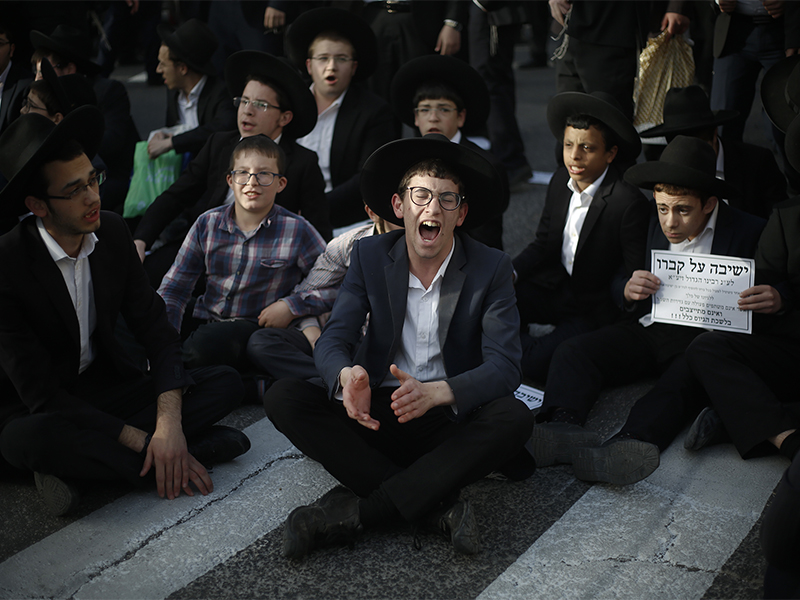High court ruling on Haredi draft exemption may set Israel on course for new elections
(RNS) — In a groundbreaking decision Thursday (March 28), Israel’s high court ruled to cut funding to rabbinical schools whose students don’t enlist in the Israel Defense Forces.
The decision overturns a nearly eight-decade-long reprieve for members of Israel’s Haredi Jewish community, who have been exempt from the military service that is mandatory for the rest of Israel’s other Jews as well as the country’s Druze and Circassian minorities. Muslim and Christian Arabs in Israel are not required to serve, though small numbers from either group do volunteer for the military.
“Shas will continue to fight for yeshiva students’ right to persevere in Torah and will consider its next steps,” said Aryeh Deri, leader of the Haredi Shas Party, in response to the ruling.
The Haredi exemption dates back to an agreement struck between Israel’s first prime minister, David Ben-Gurion, and leaders of Haredi sects, often called “ultra-Orthodox,” who immigrated to Israel in the years after the Holocaust.
During Israel’s War of Independence, Ben-Gurion allowed for those enrolled in traditional rabbinical seminaries known as yeshivas, whose main occupation is Torah study, to be exempted from serving in the Jewish militias that would become the IDF. The agreement became known as “Torah Umanato,” meaning “Torah is his job.”
Haredi leaders have argued that, while the IDF provides Israel with physical defense, the yeshiva students’ studies make it worthy of spiritual defense.

Israeli tanks head toward the Gaza Strip border in southern Israel on Oct. 13, 2023. (AP Photo/Ariel Schalit)
“Precisely during days when the nation of Israel needs heavenly mercy in the North and South, the High Court of Justice is leading a harmful approach against Torah students, upon whom the world stands,” said Deri.
However, that argument has fallen on deaf ears among Israel’s secular population and even other Orthodox groups that do serve, such as Religious Zionists.
“The issue of conscription of the Haredim has been dividing the country for more than a generation,” said Rabbi Seth Farber, an Orthodox rabbi and an advocate for religious equity in Israel. Noting that he is the father of a yeshiva student who recently served in the IDF, Farber added, “The present war simply highlights the striking inequality that exists between those who participate in the mandatory draft and in the reserves and those who don’t.”
In Ben-Gurion’s time, the exemption only applied to a few hundred young men, but over the decades, as the rules were loosened and the Haredi population grew — they comprise 13% of Israel’s population today — the exemption has expanded to cover nearly 50,000 students, with another 13,000 Haredim reaching the age of conscription each year.
The draft exemptions, zealously defended by Haredi political parties, have long been a flashpoint issue in Israeli politics but have become even more fraught since the start of the war in Gaza, where Israel has called up over 300,000 reservists to active service, while still exempting the Haredi students.
Though there was an uptick in volunteers from the Haredi sector shortly after the start of the war, earlier this month, Sephardic Chief Rabbi Yitzhak Yosef declared that Haredim would emigrate en masse if the state attempted to draft them forcibly.

Ultra Orthodox Jewish boys join a military draft protest and block an entrance to Jerusalem on March 8, 2018. (AP Photo/Ariel Schalit)
Attempts by Avigdor Lieberman, an opposition member of the Knesset, Israel’s parliament, to remove the exemption five years ago kicked off an extended period of instability, resulting in the country holding five snap elections in just four years.
After retaking the premiership, Netanyahu made a commitment last summer to resolving the issue of Haredi recruitment within nine months, a period that expires at the end of March.
For some schools, the ruling will go into effect as soon as Monday, while for others it will be delayed until the summer.
Haredi parties currently occupy 18 seats in the legislature, split between the Sephardic Shas Party and Ashkenazi United Torah Judaism Party. The defection of either would knock the ruling coalition under the required 61 seats and spark another election cycle.
“The High Court of Justice and the clerical system have decided on an all-out struggle against Torah scholars and Torah education,” said the leaders of Degel Hatorah, which represents the heads of non-Hasidic Haredi yeshivas. “They must prove to everyone that they’re in charge in this country, and they will also decide for us which coalition we will go to.”
In response to the ruling — and its threat to the coalition — Netanyahu sent a letter to the court on Thursday asking them to delay their verdict and allow more time for a compromise to be reached with the Haredi parties in light of the war.
Netanyahu’s letter broke precedent in Israel, where it is the job of the attorney general to present the government’s view to the court, and drew the scorn of the opposition.
“During wartime, the only thing that Netanyahu dealt with during the last few days was to seek a blanket exemption from enlistment for haredim that will ensure the stability of his coalition,” said opposition leader Yair Lapid, who has long campaigned against the Haredi exemptions.
“After six months of war, Netanyahu’s response is not just a slap in the faces of the mandatory and reserve soldiers, but a total abandonment of Israeli security,” added the Labor Party’s Gilad Kariv.


